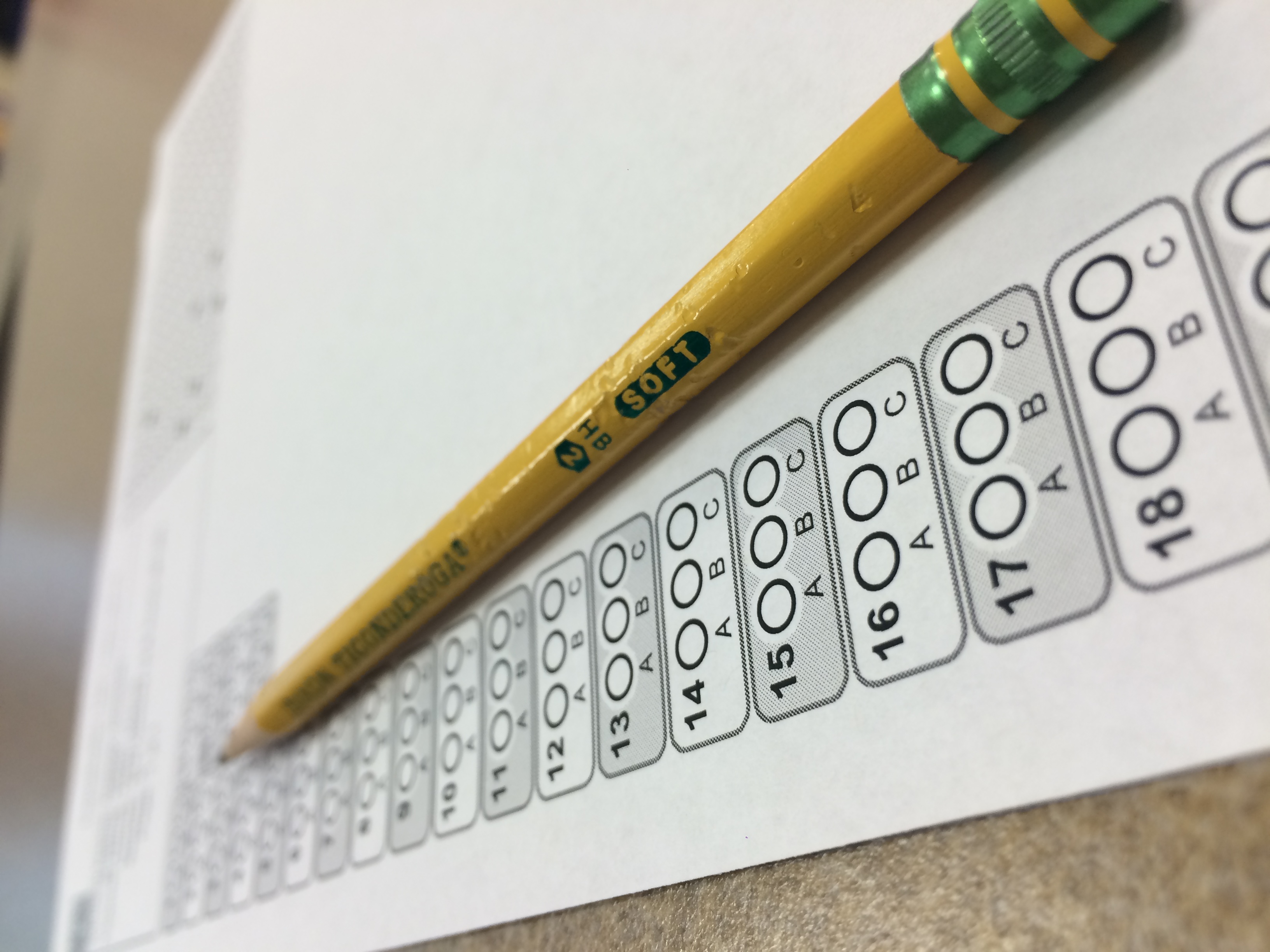
By McKenna Renier
Ugh, not another scantron. We all know the feeling of getting slapped with a standardized test. This form of testing knowledge is hurting students because teachers’ jobs revolve around teaching to a test.
This flaw in the education system should be changed by having teachers focus on the best way to teach a student, and not worried about test scores. After all, teaching in a way that helps students grasp the content better will help them retain information longer, thus making it easier to test without memorization.
We all know the feeling of a night before the test. The cramming and stress to simply make it past the exam pushes down on you. The quick memorization followed by writing formulas at the top of your page is something many people do. At the end of the semester, this short term memorization puts everyone in a bind. You may have an A, but is this bind at the end of the semester really reflective of your knowledge? Should you not be able to review once or twice and get an A on the final if you truly have mastered these skills?
Your inclination that you really just learned these skills to make it through the test is probably true. You won’t remember anything long term with this system. A year from now you probably won’t be able to even start a past exam because you’ll have no idea how to do any of the problems. In school, the way “learning” and testing is set up, we aren’t retaining information, we are just memorizing for the test.
If you study for shorter periods of time, over a longer period of time, you will recall it better than if you cram.
However, as Lynn Olsen, writer of Study Questions Reliability Of Single-Year Test-Score Gains wrote, “between 50 percent and 80 percent of the improvement in a school’s average test scores from one year to the next was temporary and was caused by fluctuations that had nothing to do with long-term changes in learning or productivity.”
This statistic forces the question of how the system is helping students long term, because the purpose of spending time at school learning is not to forget content a month later. The best way to learn, without memorizing, is to help kids relate their knowledge to real life.
We need to be able to use a process that is more in-depth, ““deeper learning” – the process of fusing content knowledge with real-world situations,” says Luke Towler, the writer for Nea Today’s Deeper Learning: Moving Students Beyond Memorization.
This idea of deeper learning is essential to the success of students. We all know that when we’re getting information about rhetoric shoved down our throats, it is much easier to understand when a teacher is able to relate it to our lives. Relating content to our lives helps us pick up information easier.
The way content is taught today does a disservice to students. Our education system needs to be based on deeper learning, not simply memorizing for a test. Teachers are just trying to help us with the government’s agenda to test everything under the sun. This test overload is the reason kids are not performing as well as people want. It is rare that teachers are able to take time out of the required lessons to apply this knowledge in a different, deeper way. If people want improvement in learning, reform is imperative.